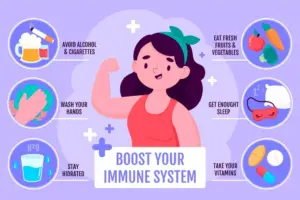Understanding and Managing Abdominal (Tummy) Pain

Abdominal pain — more commonly called tummy pain — is something nearly everyone experiences at some point. It can vary from a moderate, fleeting discomfort to more severe and unrelenting pain that impedes daily life. Though most cases of abdominal pain are not linked to underlying issues, the triggers of discomfort can differ greatly, and knowing the source is critical to either effective treatment or at least peace of mind.
What Causes Abdominal Pain?
Causes of belly pain range from digestive issues to infections. Digestive-related causes often include indigestion, irritable bowel syndrome (IBS), constipation, and food intolerances such as lactose or gluten sensitivity. Infections, particularly of the stomach or intestines, are another common culprit.
In women, reproductive concerns such as menstrual cramps, ovarian cysts, or endometriosis can be to blame for the pain. Urinary tract infections (UTIs) and kidney stones are other potential triggers in both sexes. Interestingly, emotional well-being factors in too — can stress trigger stomach pain? Yes, long-term anxiety can cause upset stomach, bloating, or cramping because of the gut-brain axis.
What Causes Lower Abdominal Pain in Females?
Lower Abdominal Pain in Women is often connected to reproductive health problems. Menstrual cramps are among the most common culprits, but other factors include conditions like endometriosis, ovarian cysts, or pelvic inflammatory disease (PID). An ectopic pregnancy — a condition in which the fertilised egg implants outside the uterus — is a medical emergency and needs immediate care.
It’s important to distinguish between discomfort that is typical for periods and more persistent or severe symptoms that might need evaluation by a physician.
Lower Left Side Abdominal Pain: Possible Reasons
Pain on the lower left side of the abdomen could be a sign of digestive or urinary tract issues. This type of discomfort may be caused by diverticulitis (inflammation of pouches in the colon), gas accumulation, or constipation. IBS, kidney stones, or even an intestinal blockage might also be responsible.
If the pain is ongoing, severe, or associated with other symptoms such as fever or vomiting, it’s best to seek medical care right away.
Abdominal Pain and Pregnancy: When to Worry
Abdominal pain can be normal in pregnancy, but sharp pains warrant medical attention. Round ligament pain — a stretching sensation as the uterus expands — is also common, especially in the second trimester.
However, more serious conditions such as pre-eclampsia, miscarriage, or ectopic pregnancy can also lead to abdominal pain. Gradual pain, on the other hand, can be normal as the uterus expands, but if the pain is acute, constant, or accompanied by bleeding, a prompt medical check-up is a must, as both mother and baby’s well-being are at stake.
How to Alleviate Abdominal Pain: Home Remedies
For abdominal pain relief, home remedies may help. Staying hydrated, placing a warm compress on the area, and taking gentle walks can all alleviate bloating or cramping.
Natural remedies such as peppermint tea can help reduce bloating and improve digestion, while ginger tea can settle nausea and inflammation. Avoid fatty, spicy, or heavily processed foods, as they can worsen symptoms in sensitive stomachs.
How to Reduce Abdominal Pain: Medical Treatments
How to reduce abdominal pain? Over-the-counter medications may help, but a doctor is needed in severe cases. Antacids or mild pain relievers might be appropriate for occasional symptoms, but persistent or recurring pain may require targeted treatment.
Doctors might prescribe antibiotics for infections or specialist medications for chronic conditions such as IBS. Never self-medicate without a proper diagnosis, as this can worsen the problem.
Can Stress Cause Abdominal Pain?
Can stress cause abdominal pain? Yes, anxiety can trigger stomach cramps and bloating. The gut and brain are closely connected, and chronic stress can disrupt digestion, leading to symptoms similar to irritable bowel syndrome or general tummy troubles.
Relaxation techniques such as deep breathing, mindfulness, or yoga can help alleviate stress-related symptoms and improve digestive health.
Abdominal Pain After Drinking: Causes & Solutions
Experiencing abdominal pain after drinking? Alcohol irritates the stomach lining, leading to discomfort. For some, even small amounts can trigger acid reflux, gastritis, or, rarely, liver inflammation.
Moderate drinking, staying hydrated, and using antacids when needed can help. However, persistent or severe pain after drinking should not be ignored, as it could indicate liver or pancreatic issues requiring urgent attention.
Conclusion
Understanding abdominal pain is the first step toward relief. Whether it’s digestive trouble, stress, or something more serious, identifying the cause is key. While most cases can be managed at home, consult a GP if symptoms are severe, persistent, or unusual.
To schedule an appointment with a GP at Chase Lodge Hospital for a clear diagnosis and personalised treatment, call today.



